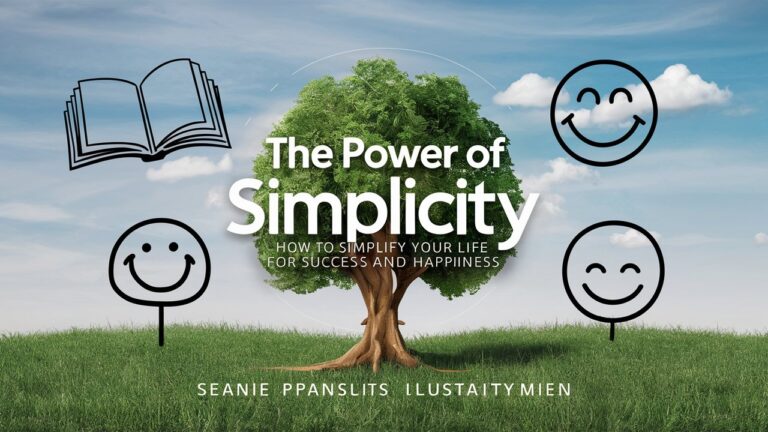In a fast-paced world filled with endless notifications, constant obligations, and an overwhelming stream of information, the concept of simplicity has become more valuable than ever. While modern life promises convenience, it often brings stress, distractions, and mental clutter. Choosing to simplify your life is not about giving up ambition or living without technology — it’s about consciously removing the unnecessary so you can focus on what truly matters. simpciry is more than just a lifestyle choice; it is a strategy for success, happiness, and overall well-being. Whether you aim to boost your productivity, find peace in daily living, or discover your deeper purpose, embracing the art of simplicity can transform your days from chaotic to clear.
The Meaning of Simplicity in Everyday Life
At its core, simplicity means stripping away excess and focusing on essentials. In everyday life, this could mean decluttering your home, reducing your commitments, or practicing mindful consumption. Many confuse simplicity with minimalism, but while minimal living focuses on owning fewer possessions, simplicity extends beyond the physical — it includes mental clarity, emotional balance, and intentional decision-making. When you commit to simplifying, you stop wasting energy on the trivial and start channeling your focus toward what adds true value. This is not just about reducing possessions but also about reducing stress and mental noise so you can find clarity in your actions and goals.
Why Simplicity Leads to Success and Happiness
One of the biggest advantages of simplicity is that it enhances productivity. When you eliminate distractions and streamline your responsibilities, you create more time and mental space for meaningful work. Professionals who practice simplicity often report higher levels of concentration, faster decision-making, and greater creative output. On a personal level, simplicity fosters peace and emotional stability. Without the constant rush of unnecessary commitments, you have more time to nurture relationships, pursue passions, and enjoy life’s simple pleasures. This harmony between focus and well-being is the foundation for sustainable success and lasting happiness.
Practical Ways to Simplify Your Life
Embracing the art of simplicity starts with intentional choices. Begin with your environment — clear out clutter, organize your space, and keep only what you truly need. In your digital life, unsubscribe from unwanted emails, limit social media consumption, and organize files for easy access. In your schedule, learn to say no to activities that drain your energy and prioritize those that align with your purpose. Practice mindful spending to reduce financial stress, and engage in daily reflection to keep your goals clear. By making these small but powerful adjustments, you can create a lifestyle that supports minimal living without sacrificing comfort or joy.
The Deeper Purpose of Simplicity
Beyond efficiency and stress reduction, simplicity allows you to live with greater intention. Every choice you make becomes a reflection of your values, whether it’s how you spend your time, the relationships you invest in, or the work you commit to. Simplicity doesn’t mean living without ambition — it means aligning ambition with meaning. The result is a life of clarity, where your actions are guided not by external pressures but by internal purpose. By focusing on what truly matters, you naturally create a sense of peace and fulfillment that no amount of complexity can offer.
Conclusion
The journey toward simpciry is not about restriction — it’s about liberation. In a world that glorifies busyness and excess, choosing to simplify your life is a powerful act of self-awareness. By embracing the art of simplicity, you can enhance your productivity, experience greater peace, and live with authentic purpose. Whether you’re seeking success, happiness, or simply a clearer path forward, remember that the key often lies not in adding more, but in letting go of what you do not need.
Frequently Asked Questions (FAQ)
Q1: Is simplicity the same as minimalism?
No, minimalism focuses primarily on reducing physical possessions, while simplicity includes decluttering your mind, schedule, and priorities.
Q2: How does simplicity improve productivity?
Simplicity removes distractions, reduces decision fatigue, and helps you focus on high-impact tasks, making your work more efficient.
Q3: Can simplicity really reduce stress?
Yes. When you simplify your commitments and environment, you reduce overwhelm and create space for rest and clarity.
Q4: Is living simply expensive?
Not at all. In many cases, simplifying your life can save money because you avoid unnecessary purchases and focus on what you truly need.
Q5: How do I start living a simpler life?
Start small — declutter a single space, set clear priorities, and practice saying no to non-essential commitments. Over time, these small actions create lasting change.

